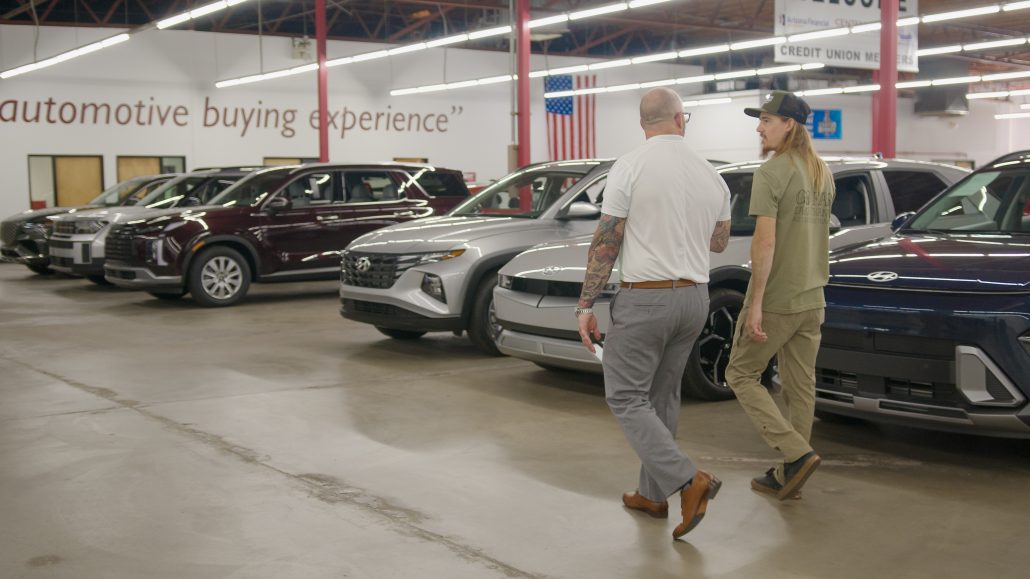
How to Sell Your Car to an Auto Broker: The Smart, Hassle-Free Way
Selling your current vehicle often feels like a necessary evil. On one hand, private sales can be time-consuming, involve dealing with strangers, and expose you to the risk of scams or endless lowball offers. On the other hand, dealerships may offer a quicker process, but they often give you the lowest possible price and use high-pressure tactics to push you into one of their new cars.
For busy professionals and discerning individuals in Phoenix, neither option offers the convenient, transparent, and high-value experience you expect. An easier way is to sell your car through an auto broker. It’s often the smartest move for those who prioritize time, safety, and getting a competitive price without the headaches.
Here’s a detailed guide on how to sell your car to an auto broker and why this trusted method is gaining popularity.
What Exactly Is an Auto Broker?
If you’re considering working with an auto broker, it helps to first understand exactly what being an auto broker means. In short, an auto broker is a licensed, professional intermediary who works on the seller’s behalf (or the buyer’s, depending on the transaction). Think of them as your personal automotive advisor.
How a Broker Differs:
| Method | Role | Primary Goal | Convenience |
|---|---|---|---|
| Dealership | Direct buyer, limited to their inventory needs. | Maximize profit on the purchase and subsequent sale. | High, but low payout. |
| Private Sale | You are the seller, dealing with the public. | Maximize profit (highest potential payout). | Low, very high risk and effort. |
| Auto Broker | Intermediary, representing your interests. | Secure the highest fair market bid across a network. | High, balanced payout. |
The most important distinction is this: a broker is an advocate. They don’t simply give you a take-it-or-leave-it offer. They actively shop your car to a wide network of dealers, auctions, and qualified buyers to secure the best, most competitive offer on your behalf.
Why Sell Your Car Through an Auto Broker?
Selling to an auto broker is about blending the high value of the private market with the simplicity of a trade-in. Here’s why busy individuals choose this route:
- Time Savings: No need for listing photos, creating endless ads, fielding calls, or spending Saturdays at different dealerships getting appraisals.
- Transparent Pricing: The broker’s fee structure is disclosed upfront. You see the offers they secure and know exactly what you’ll receive—no hidden fees or “lowball then bump” games.
- Multiple Offers, One Stop: The broker leverages their established network, getting your car in front of various interested buyers and securing true fair market bids.
- Ultimate Convenience: Your broker handles all the stressful details: the appraisal, the negotiations, and the mountains of title transfer paperwork. Many even offer scheduled pickup.
- Trusted Process: For those wary of scams or high-pressure tactics, working with an established, reviewed auto broker provides peace of mind and security.
Selling to an auto broker is about blending the high value of the private market with the simplicity of a trade-in.
Step-by-Step: How to Sell Your Car with an Auto Broker
The process is designed to be simple and convenient for you. Here is the typical flow you can expect when selling your car to an auto broker in the Phoenix area:
1. Initial Contact
The process starts when you reach out to the broker via phone, an online form, or an in-person consultation. You provide basic details about your vehicle, such as Year, Make, Model, Mileage, Condition.
2. Vehicle Evaluation
The broker will schedule an appraisal. Some brokers can handle this remotely with photos and video, or with a quick in-person inspection. They assess the vehicle’s condition, features, and service history to establish its true market value.
3. Broker Shops Offers
This is the core value proposition. Your broker uses their network to solicit bids from multiple interested parties, including local dealerships, wholesalers, and specialized auctions.
4. Negotiation on Your Behalf
Your broker reviews the offers and uses their industry expertise to negotiate the highest possible sale price for you. They present you with the top offer, clearly outlining your net payment after any fees.
5. Agreement & Paperwork
Once you accept the price, your broker prepares all the necessary contracts, handles the title transfer (including any necessary payoff paperwork with a lienholder), and manages the release of liability.
6. Vehicle Handoff
You coordinate a final pickup time or drop-off location that fits your schedule.
7. Payment
You receive payment according to the agreed-upon timeline (often same-day or next-day bank transfer, depending on the payoff situation).
What Documents Do You Need?
To speed up the process and ensure a smooth transaction, have these documents ready before you begin:
- Vehicle Title: The physical title, or the contact information for your current lienholder (bank or finance company) if you still have a loan or lease.
- Current Registration: Proof that you are the legal owner/operator.
- Valid ID: Your driver’s license or other government-issued photo ID.
- Service Records: Maintenance history helps validate the vehicle’s condition and can maximize your sale price.
- State-Required Documents: Any required emissions test or state-specific documents for Arizona.
Document Checklist for Selling Your Car Through a Broker
- Title/Lienholder Info
- Valid Driver’s License
- Registration Card
- Maintenance Records
- Clear out all personal belongings
How Much Does It Cost to Use an Auto Broker?
Transparency is essential, and a good broker will clearly explain their fee structure upfront. Selling your car through an auto broker typically involves one of the following fee structures:
- Flat Fee: The broker charges a set dollar amount regardless of the final sale price.
- Commission: The broker charges a percentage of the final sale price.
- Included in Sale Price: In some cases, the fee is the difference between the bid they secure and the amount they pay you, which is all factored into the final amount presented to you.
The fee is almost always deducted from the final sale price, meaning you don’t pay any money out of pocket upfront. While you pay a fee, the broker’s ability to secure a higher-than-average market bid often outweighs that fee, leaving you with a better net payout than a low dealer trade-in.
Auto Broker vs Dealer vs Private Sale: A Comparison
The choice depends on what you value most: convenience, payout, or time.
| Consideration | Auto Broker | Dealer Trade-In | Private Sale |
|---|---|---|---|
| Payout Potential | Good (Balance of convenience/value) | Lowest | Highest (More risk/effort) |
| Time to Sale | Fast (2-5 days typical) | Instant | Slow (Weeks or months) |
| Convenience | Excellent (Broker handles everything) | Excellent (Single transaction) | Poor (You handle everything) |
| Paperwork Handled | Yes, fully handled | Yes, fully handled | No, fully your responsibility |
| Safety/Scam Risk | Very Low | Very Low | High |
| Negotiation Required (By You) | None | Some, but often limited by the system | High |
When Does Selling to a Broker Make the Most Sense?
Selling to an auto broker is the ideal solution for several scenarios:
- Busy Professionals: When your time is worth more than the hassle of negotiating for weeks.
- People Wary of Scams: If you prefer secure, vetted, and transparent transactions over dealing with strangers.
- Owners of Luxury or Specialty Cars: Brokers have access to a network of qualified buyers who specialize in higher-end or unique models.
- Lease or Loan Payoff Situations: If you have negative or positive equity, a broker helps to cleanly settle the financing and title transfer, which is a complex process to manage privately.
- Small Business Fleet Sellers: If you need to offload multiple commercial vehicles quickly, a broker offers a single, convenient point of contact to manage the turnover of a small fleet.
How to Vet a Trustworthy Auto Broker
Because the broker acts on your behalf, trust is everything. Here’s what to look for when vetting a broker in Phoenix:
1) Check Licensing: Confirm they are properly licensed to conduct brokerage activities in Nevada.
2) Review Testimonials: Look for verified Google reviews and testimonials, specifically mentioning transparency, competitive pricing, and ease of transaction.
3) Demand Transparent Contracts: The contract should clearly define the sale price, the broker’s fee, and the payment timeline with no vague language.
4) Watch for Red Flags: Avoid brokers who use pressure tactics, ask for a large upfront fee, or are vague about where the final sale money is coming from.
Centennial Leasing & Sales has over 40 years in the business. We have built our reputation on transparency and thousands of 5-star reviews, offering peace of mind to sellers across Arizona.
Tips to Maximize Your Sale Price
Even when using a broker, a little effort goes a long way toward increasing your vehicle’s resale value:
- Clean and Detail Your Car: A clean car always photographs and appraises better than a dirty one.
- Fix Minor Cosmetic Issues: Small dents or scratches can drastically lower a wholesale offer. Ask your broker if minor repairs are worth the investment.
- Gather Service Records: Complete, organized records prove the vehicle has been well-maintained.
- Check Estimated Value: Review your car’s value on sites like KBB or Edmunds before contacting the broker, so you have a realistic expectation of the market price.
- Remove Personal Items: Don’t forget to clean out the trunk, glove box, and center console.
FAQs About Selling to an Auto Broker
- Are auto brokers trustworthy? Yes. Auto brokers are licensed, regulated professionals who operate as fiduciaries, meaning they have a legal and ethical obligation to act in your best interest.
- Do brokers pay fairly compared to private buyers? A private buyer may potentially offer more, but the broker’s offer is almost always higher than a dealership trade-in. The difference in price is often worth the immense savings in time, effort, and risk.
- How fast can I get paid? Once the offer is accepted and the paperwork is complete, payment is often processed the same or next business day, especially if the car is free and clear of a lien. Payoffs to a finance company may take a few days to clear.
- Can brokers handle leased or financed cars? Absolutely. Brokers regularly handle lease and loan payoffs. They will take care of the complex process of dealing with your lienholder, often finding ways to extract any positive equity you may have.

The Smart, Hassle-Free Way to Sell Your Car
For busy professionals and discerning sellers in Phoenix, the decision to sell your car with an auto broker comes down to value: the value of your time, the value of a secure transaction, and the value of a competitive price.
Selling through an auto broker is the ultimate blend of convenience, transparency, and fair value. Whether you’re offloading a single luxury sedan or managing the turnover of a small business fleet, selling to a trusted broker makes the process simpler and safer.
Centennial Leasing & Sales has helped countless Arizona drivers sell their cars quickly and with confidence.